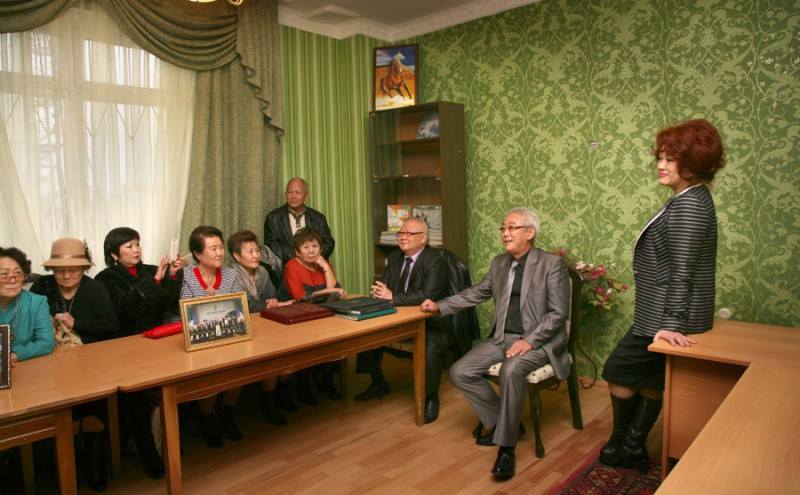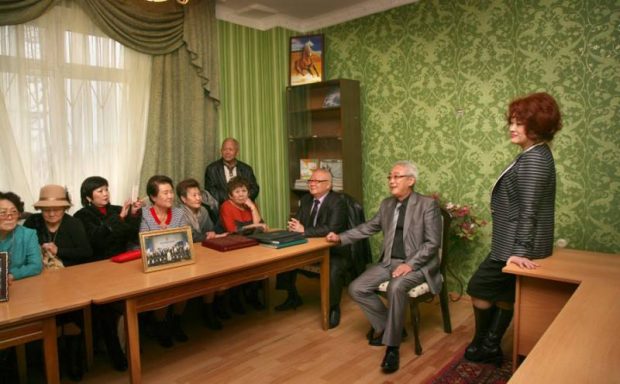
Koreans in Namangan
 Representatives of different ethnic groups, cultures, and religions lived on ancient Uzbek land in peace and harmony for many centuries. The years surrounding independence have strengthened the inter-ethnic relations within the country. Today, the air of friendship and solidarity in Uzbekistan is an essential factor to the peace and stability of the region
Representatives of different ethnic groups, cultures, and religions lived on ancient Uzbek land in peace and harmony for many centuries. The years surrounding independence have strengthened the inter-ethnic relations within the country. Today, the air of friendship and solidarity in Uzbekistan is an essential factor to the peace and stability of the region
There are currently 137 cultural centres in Uzbekistan, among which the Association of the Korean Cultural Centres of Uzbekistan (with branches in all regions of the nation) has been playing a major role in the development of ethnic identity and furthering the harmonization of relations between differing nationalities in the country.
By developing their own culture, language, and arts, they contribute to the mutual enrichment of cultures and strengthening of the sense that there is a common multi-ethnic family amongst all citizens of Uzbekistan.
The Korean Cultural Centre of Namangan region, established in 1989, is one of Uzbekistan’s key cultural units. Koreans in the Namangan Administrative Centre all have access to their own culture and language in Uzbekistan. It is worthy to note that since 2009, this particular centre holds the Friendly City Agreement with South Korean city, Seongnam.
The administration also has a secondary school and a preschool establishment specializing in the Korean language. Ethnic Korean youth are good speakers of Uzbek and Korean. Around the area there are many Korean cuisine restaurants that non-Koreans find delicious. As a side note, the “Arirang” folklore ensemble is one of the most popular ethnic ensembles in Uzbekistan.
Generally believed to be hard-working, Koreans of Namangan are active members of society. There are many well-known representatives such as poet Lyudmila Tsoy, and sports coaches: Tikhon Kan, Irina Kim, Rodion Pak.
“Uzbekistan is a great country, a model for tolerance,” says Larisa Ni, head of the centre. She was the recipient of the current medal of Uzbekistan “Shukhrat” and deputy of the city council. Ni added that “It is a tremendous delight to live in such a land and make one’s own input into its prosperity.”
Dilmurod Jumabayev, Vodiymedia.uz


